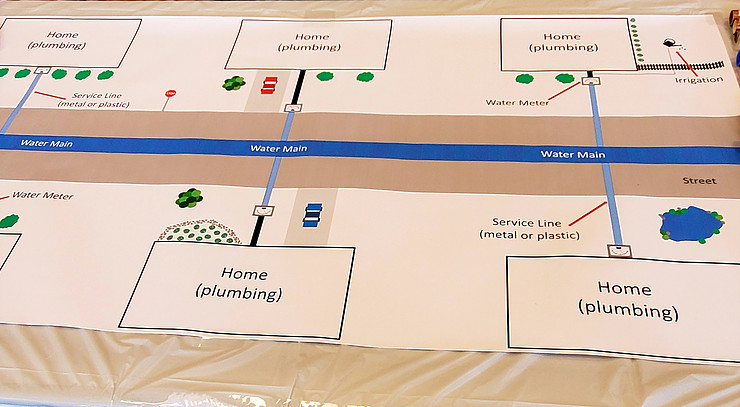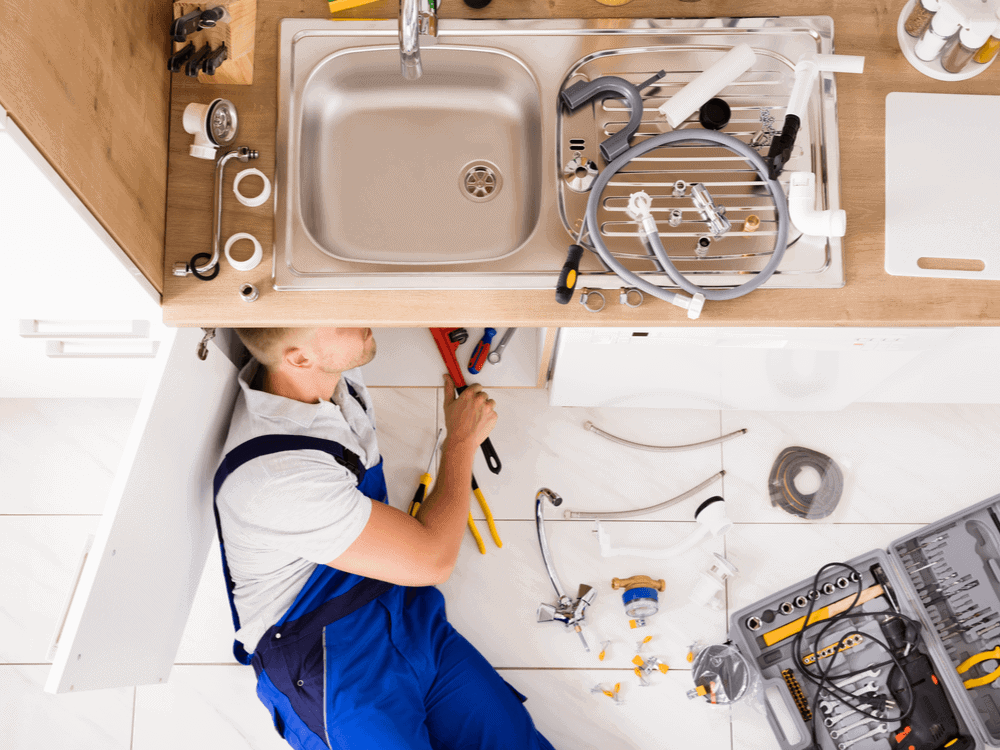How The Structure of Your House's Plumbing System Matters
Call TodayWhat are your thoughts with regards to The Inner Workings of Your Home's Plumbing?

Understanding how your home's pipes system functions is necessary for each property owner. From delivering clean water for alcohol consumption, food preparation, and showering to securely getting rid of wastewater, a properly maintained pipes system is vital for your household's health and wellness and convenience. In this detailed guide, we'll discover the complex network that composes your home's pipes and deal suggestions on maintenance, upgrades, and dealing with common issues.
Introduction
Your home's pipes system is more than just a network of pipes; it's a complex system that ensures you have accessibility to tidy water and reliable wastewater elimination. Recognizing its parts and just how they collaborate can assist you avoid costly repairs and make certain every little thing runs smoothly.
Basic Components of a Plumbing System
Pipes and Tubes
At the heart of your pipes system are the pipelines and tubes that lug water throughout your home. These can be made from different materials such as copper, PVC, or PEX, each with its benefits in regards to sturdiness and cost-effectiveness.
Fixtures: Sinks, Toilets, Showers, etc.
Components like sinks, bathrooms, showers, and bathtubs are where water is made use of in your home. Understanding how these fixtures connect to the pipes system aids in detecting problems and intending upgrades.
Shutoffs and Shut-off Factors
Valves manage the flow of water in your plumbing system. Shut-off shutoffs are vital throughout emergencies or when you need to make repairs, permitting you to separate parts of the system without interrupting water flow to the entire house.
Water System
Key Water Line
The primary water line attaches your home to the local water supply or a personal well. It's where water enters your home and is distributed to numerous fixtures.
Water Meter and Stress Regulator
The water meter measures your water use, while a pressure regulatory authority guarantees that water moves at a risk-free stress throughout your home's plumbing system, preventing damage to pipelines and fixtures.
Cold Water vs. Warm water Lines
Comprehending the difference between cold water lines, which provide water directly from the major, and hot water lines, which lug warmed water from the water heater, assists in repairing and planning for upgrades.
Drain System
Drain Pipes Pipes and Traps
Drain pipes bring wastewater far from sinks, showers, and toilets to the drain or sewage-disposal tank. Catches protect against sewer gases from entering your home and likewise catch particles that could cause clogs.
Ventilation Pipelines
Ventilation pipelines permit air into the water drainage system, preventing suction that might reduce drainage and trigger catches to empty. Appropriate air flow is important for keeping the integrity of your plumbing system.
Significance of Appropriate Water Drainage
Making certain correct water drainage prevents backups and water damage. Routinely cleaning up drains pipes and keeping catches can protect against pricey repairs and extend the life of your plumbing system.
Water Heating System
Types of Water Heaters
Water heaters can be tankless or conventional tank-style. Tankless heating units warm water as needed, while storage tanks keep warmed water for instant usage.
Updating Your Plumbing System
Reasons for Upgrading
Updating to water-efficient components or changing old pipelines can improve water quality, decrease water expenses, and boost the worth of your home.
Modern Pipes Technologies and Their Benefits
Explore technologies like smart leak detectors, water-saving bathrooms, and energy-efficient hot water heater that can save money and decrease ecological effect.
Price Factors To Consider and ROI
Compute the ahead of time costs versus long-term savings when considering plumbing upgrades. Several upgrades spend for themselves through reduced utility bills and fewer repairs.
How Water Heaters Connect to the Plumbing System
Understanding how water heaters connect to both the cold water supply and warm water circulation lines aids in detecting concerns like not enough warm water or leakages.
Upkeep Tips for Water Heaters
Frequently purging your water heater to eliminate sediment, examining the temperature level settings, and checking for leaks can extend its life-span and enhance energy efficiency.
Usual Pipes Concerns
Leakages and Their Causes
Leaks can occur due to maturing pipelines, loose fittings, or high water pressure. Addressing leakages without delay stops water damage and mold growth.
Obstructions and Obstructions
Blockages in drains and toilets are usually brought on by flushing non-flushable items or a build-up of oil and hair. Utilizing drain displays and bearing in mind what decreases your drains can protect against blockages.
Indications of Plumbing Troubles to Look For
Low water stress, sluggish drains, foul odors, or abnormally high water expenses are signs of potential pipes issues that should be resolved quickly.
Plumbing Upkeep Tips
Routine Inspections and Checks
Set up annual pipes assessments to catch concerns early. Search for indicators of leaks, deterioration, or mineral accumulation in faucets and showerheads.
Do It Yourself Maintenance Tasks
Straightforward tasks like cleaning tap aerators, checking for commode leaks making use of dye tablet computers, or protecting exposed pipelines in cold climates can protect against major pipes problems.
When to Call a Professional Plumbing Professional
Know when a plumbing problem requires specialist experience. Attempting intricate repair work without correct knowledge can bring about more damages and higher repair work prices.
Tips for Reducing Water Use
Simple routines like fixing leaks without delay, taking shorter showers, and running complete lots of laundry and recipes can conserve water and lower your energy costs.
Eco-Friendly Plumbing Options
Think about sustainable plumbing products like bamboo for flooring, which is durable and environmentally friendly, or recycled glass for counter tops.
Emergency situation Preparedness
Actions to Take Throughout a Plumbing Emergency
Know where your shut-off shutoffs are located and exactly how to switch off the water supply in case of a burst pipeline or significant leak.
Significance of Having Emergency Situation Contacts Useful
Keep get in touch with details for local plumbings or emergency solutions conveniently available for quick action during a plumbing situation.
Ecological Influence and Conservation
Water-Saving Fixtures and Home Appliances
Mounting low-flow taps, showerheads, and toilets can dramatically reduce water usage without compromising efficiency.
Do It Yourself Emergency Situation Fixes (When Applicable).
Short-term repairs like utilizing duct tape to patch a leaking pipe or putting a pail under a trickling tap can minimize damage until a specialist plumber arrives.
Conclusion.
Comprehending the composition of your home's plumbing system equips you to preserve it successfully, saving time and money on repair services. By complying with routine upkeep regimens and remaining notified regarding contemporary pipes modern technologies, you can ensure your plumbing system runs successfully for several years ahead.
HOW YOUR PLUMBING SYSTEM WORKS
Which Pipes Do What?
Blue lines = fresh water supply entering the building Red lines = hot water supply entering the building Grey lines = pipes carrying waste away from the building and venting pipes carrying gases away from the building (through the roof) YOUR MAIN PLUMBING SYSTEMS
There are two main plumbing systems that support your home s basic plumbing needs one that brings clean water into your home, and one that sends dirty water away from your home. Connected to the toilet, bath, shower, and other faucets in your home, these two systems keep your water flowing in the right directions.
ACCESSING FRESH WATER
Fresh and clean water is brought into your home through the main water supply line . Filtered through one pipe, this water is pressured to flow into the various fixtures in your home at any given time.
This water can be sourced from a well located on your property, a pond or river (mostly cottages), or, as in most cases, from the city s municipal water treatment centre. However, it is important to note that water that is untreated, such as the water siphoned from ponds or rivers, may not be safe to drink. Personal water supplies always need to be treated for hardness and contaminants before consumed.
MUNICIPAL WATER SUPPLIES
Improve taste and odour Remove sediment Eliminate hardness Reduce chlorine COLD WATER SUPPLY VS. HOT WATER SUPPLY
Cold water flows into your home or building through the service line, which then distributes hot or cold water to your fixtures. This line is most commonly run through a central column that runs floor to floor. Hot water runs in short and straight pipes as the longer the pipeline, the more heat that will be lost in the transfer. Having shorter pipes also allows residents to access hot water more quickly.
WASTE WATER SYSTEM
Your wastewater system is divided into two parts pipes that send wastewater away from your home and venting pipes that send sewer gas away from your home. Sewage water travels through pipes that flush the water and waste towards local sewers that are operated and managed by your city or town. Most sewer systems rely on gravity to move the wastewater to where it needs to go.
The further away from your toilet or sink, the larger wastewater pipes become. This allows for waste to be disposed of from various parts of your home or business at once without pipe blockages. The angle and flow of these pipes are also essential for keeping your waste pipes clear of build up.
https://harrisplumbing.ca/how-your-home-plumbing-system-works/

Do you like more info about ? Leave a review down the page. We'd be pleased to hear your reactions about this write up. We hope that you visit us again later on. Do you know another individual who is fascinated by the subject? Do not hesitate to promote it. I enjoy reading our article about .
More Details